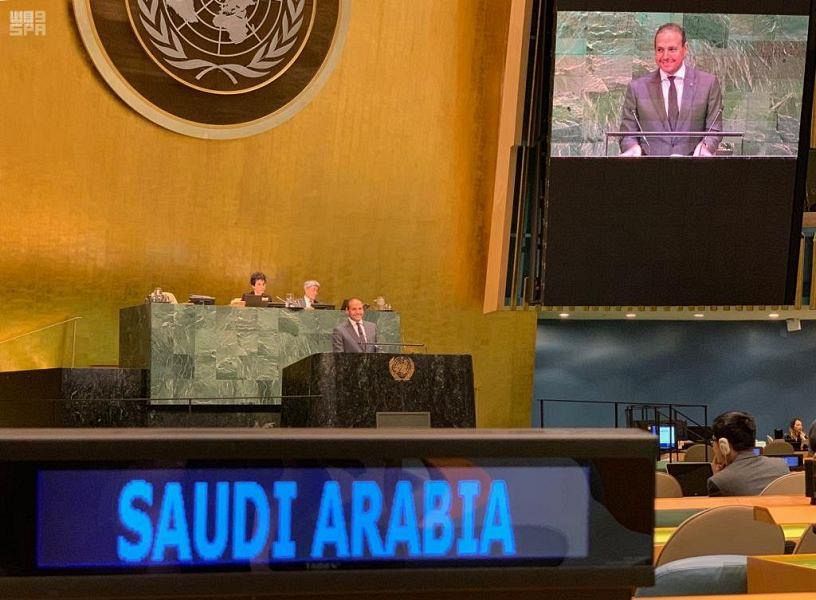
The Kingdom is home to more than 10 million foreign workers who in 2017 sent almost $38 billion to their home countries
JEDDAH: The Saudi government is not expected to impose fees on the remittances of foreign workers despite a related proposal submitted to the Shoura Council to discus the subject.
Dr. Mohammed Al-Abbas, an economic analyst, told Arab News that the proposal was made even before the last drops in oil prices.
“Long ago, foreign workers’ remittances went as high as nearly SR150 billion ($40 billion). Since then media has called for the imposing of fees on such remittances. At that time there was no tendency to impose dependent fees on expats,” Al-Abbas said.
He added that the only discussion circulating then was whether to impose fees on remittances or not.
Al-Abbas, who is also a member of the Shoura Council, explained that the main point behind that idea was to preserve the country’s financial reserves. “As you know, when an expat worker sends money to his country, the process should go through major currencies, especially the dollar. That means banks change riyals with dollars. That way, dollars are sent outside the Kingdom. This, of course, drains our reserves of hard currency,” he said.
For that reason, Al-Abbas continued, a proposal was made to curb such remittances for the sake of alleviating pressure on our reserves.
Asked if the move would add to the national economy, he said: “I do not want to anticipate events, but I can say, from my own point of view, and this is just my personal opinion, imposing fees on foreign workers remittances was not feasible in the past, nor will it be a major solution, as such remitting processes can be made through a variety of channels,” he said.
He further explained that when an expat pays all his taxes regularly to the government, you could not then stop him from doing any lawful action. This is one of the rights that the regulations of Kingdom have guaranteed him. He added that it is not acceptable to ask a foreign worker who is committed to paying taxes to pay for his remittances. “The Kingdom’s rules are always based on justice and fairness,” he said.
Al-Abbas believes that the move will not work as a solution to national economic issues, such as unemployment. “I do not think such a project will even have a good impact on the national economy, in that it will not contribute to reducing unemployment rates,” he said.
Al-Abbas added that the project would not help to reduce the shadow economy. The experienced analyst thinks that the move would only cause harm to foreign laborers.
He said that the project, if approved, will have negative consequences on foreign investments in Saudi Arabia. He also noted that the countries of these foreign workers would reciprocate. “They will do the same and impose fees on Saudis living or working in their countries. This normally happens in global economic policies,” he said.
He pointed out that the project is still a proposal that might be discussed at the Shoura Council, and the latter may agree on the suggestion or not. “So far nothing is official about that,”
Furthermore, Al-Abbas said that imposing such burdens would also make it hard to control capital mobility smoothly and fairly, and might be a barrier to capital movement. “The most important point here is to efficiently control our banking system if we want things to go the way we like. Here is the point we should work on. The Saudi banking system is strong enough to detect any tax evasion attempts,” he said.
He gave an example, saying if a foreign worker tries to remit big amounts of money, he will be questioned as: “Where did you get that amount from?” In case he was found not paying tax, tough legal measures will be taken against him. “These measures can be as harsh as expropriating his whole money if he fails to disclose its source,” he said.
Another important issue that Al-Abbas highlighted is to support the Ministry of Trade’s great efforts in fighting cover-up (tasatur). He said that it would be better if we focus on these two matters rather than imposing more fees on foreign workers.
Saudi Arabia’s Ministry of Finance has earlier denied reports that it was planning to impose fees on the remittances of foreign workers.
The ministry said it was committed to supporting the free movement of capital through official channels in accordance with international standards and practices. The statement was issued in response to “baseless and unfounded reports” by some media outlets.
The Kingdom is home to more than 10 million foreign workers who in 2017 sent almost $38 billion to their home countries.
The ministry said keeping the remittances free of fees “will also enhance foreign investors’ confidence in the Kingdom’s economy and financial systems.”
The ministry said it had already denied rumors of charging expats for their remittances in January 2017.












